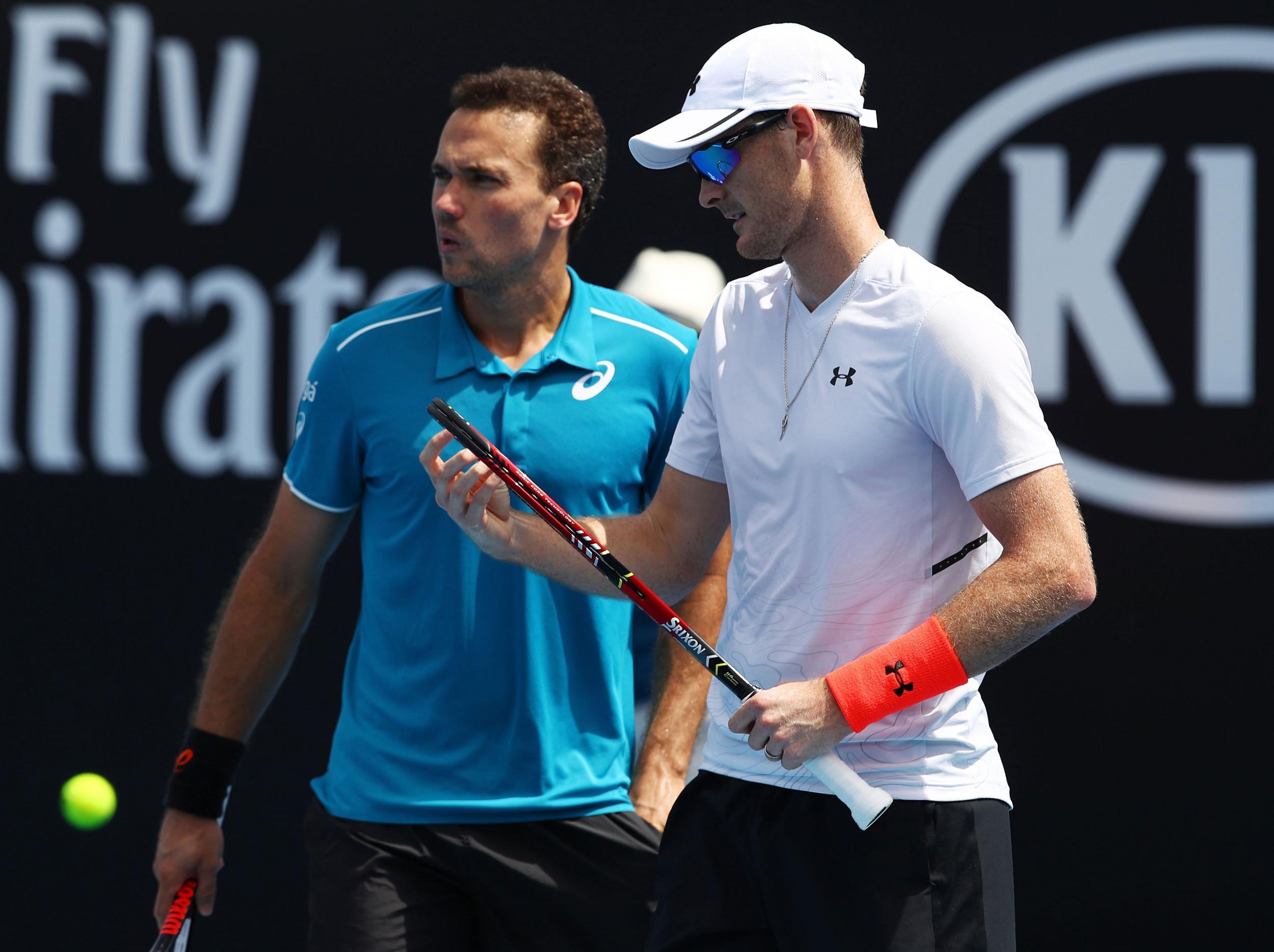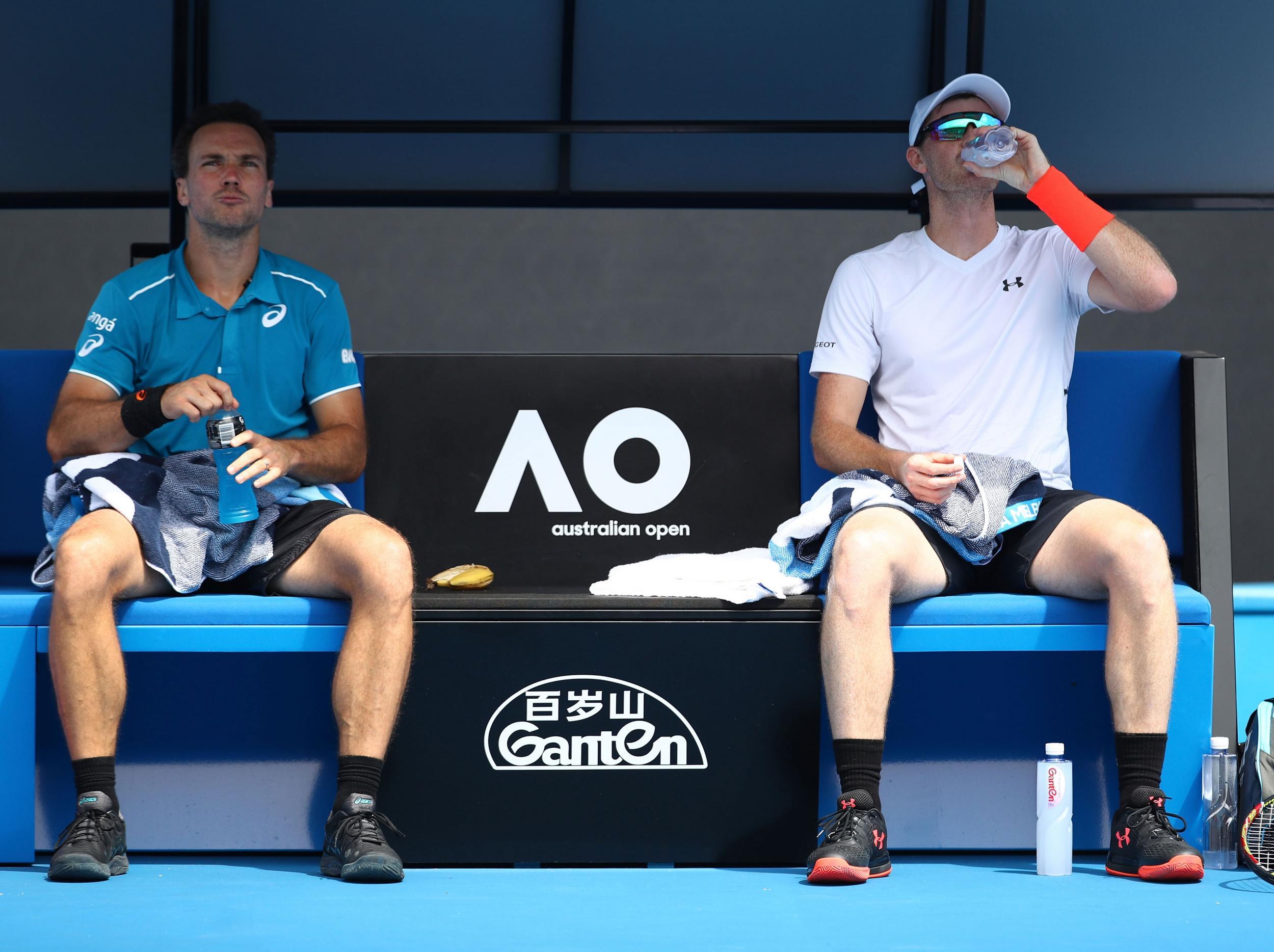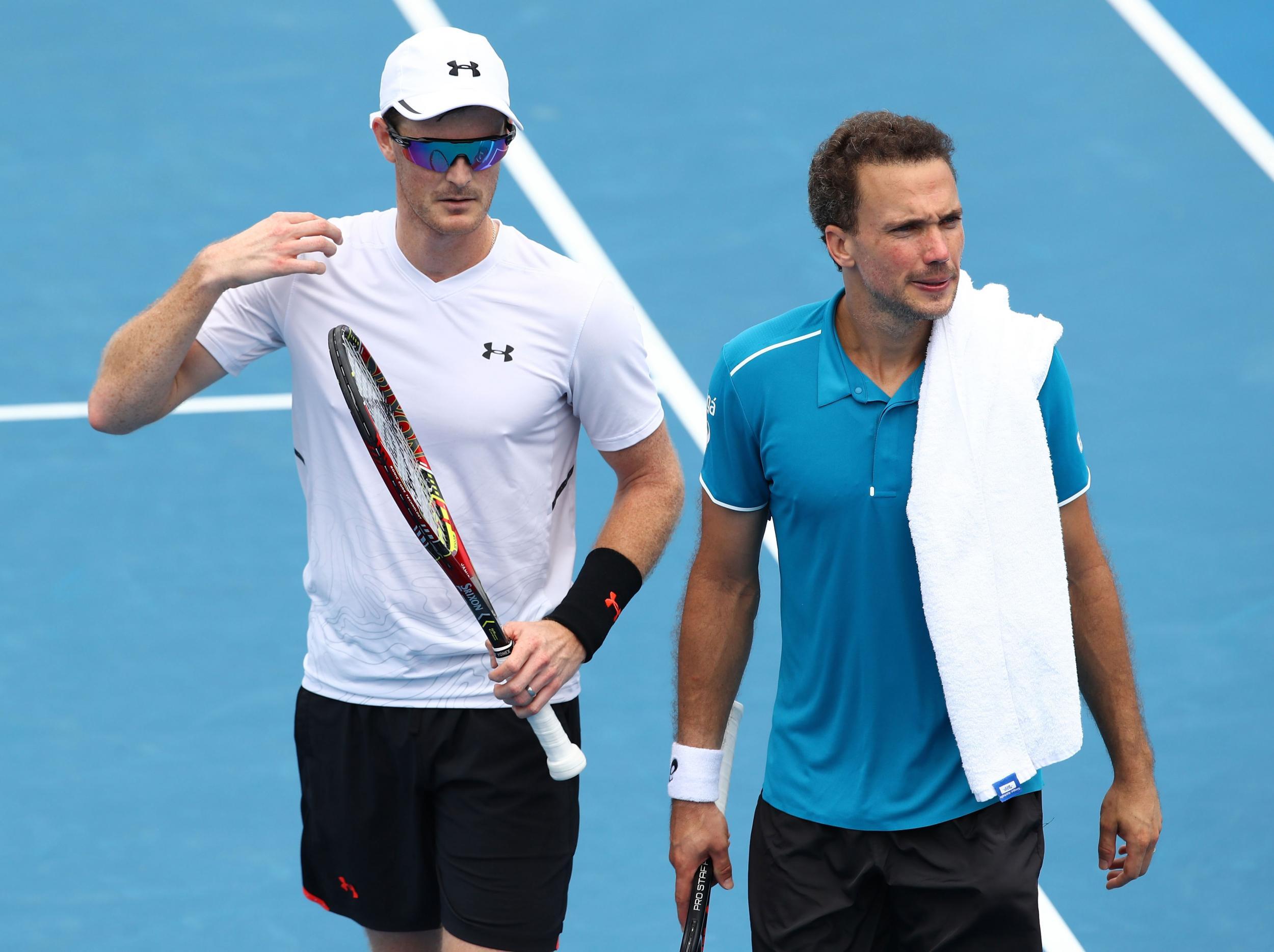Jamie Murray: Players deserve greater share of Grand Slam prize money but won't boycott to get it
Increased prize money and the possibility of the players breaking away from the ATP to form their own union have been on the agenda all week in Melbourne

Your support helps us to tell the story
From reproductive rights to climate change to Big Tech, The Independent is on the ground when the story is developing. Whether it's investigating the financials of Elon Musk's pro-Trump PAC or producing our latest documentary, 'The A Word', which shines a light on the American women fighting for reproductive rights, we know how important it is to parse out the facts from the messaging.
At such a critical moment in US history, we need reporters on the ground. Your donation allows us to keep sending journalists to speak to both sides of the story.
The Independent is trusted by Americans across the entire political spectrum. And unlike many other quality news outlets, we choose not to lock Americans out of our reporting and analysis with paywalls. We believe quality journalism should be available to everyone, paid for by those who can afford it.
Your support makes all the difference.Jamie Murray thinks that players deserve to earn a greater share of Grand Slam revenues but does not believe there would ever be a situation where they would boycott a tournament to further their claim.
Murray, who with his Brazilian partner Bruno Soares went out of the Australian Open here today when they were beaten 7-6, 5-7, 7-6 by India’s Leander Paes and Purav Raja, also cast doubt over whether a players’ union would benefit the majority of players.
Increased prize money and the possibility of the players breaking away from the Association of Tennis Professionals to form their own union have been on the agenda ever since Novak Djokovic talked about them at a players’ meeting here last week. Djokovic is President of the ATP’s 12-man Player Council, on which Murray and Soares also sit.
Pay for doubles players is a particular issue for Soares and Murray. Soares said that at Grand Slam level doubles players receive an average of only 12 per cent of the prize money compared with 88 per cent for singles players. He said he would be happy if the four tournaments followed the example of the men’s tour, where there is an 80-20 split.
Murray said there was not much talk about pay for doubles players on the Player Council. “Ultimately we cannot do anything,” he said. “That’s why the players get frustrated with the whole Grand Slam situation. We don’t have a seat at the table. They can do what they want. But of course the players get well paid at the Grand Slams.”
Asked if a players’ union might give them a stronger voice, Murray said: “I don’t know if it could or not. I don’t really know enough about that and how it would work. It’s a bit out of my depth.
“But talking to people about it, it seems a small amount of players would have benefit from that and maybe the masses wouldn’t. I’m one of the masses and I’m playing doubles as well, so potentially it’s not in my interest, but other people would say otherwise.”
Would he ever be prepared to join a boycott of a tournament? “I don’t think that is something we would ever do, to be honest,” Murray said.
However, both Murray and Soares insisted that the overall level of prize money at Grand Slam tournaments is too low.
“The Slams are already giving only seven per cent of their revenue to the players, so that’s already really, really low,” Soares said. “We’re the players and we make the show. They’re able to make all this revenue because they do a good job, but mainly because they’ve got great players. We put on the show for them.”

Murray added: “I think seven per cent is not a whole lot of the share of the pie. I think if it’s bigger then I think a lot of the players would be happier with that. What would I say about the doubles split, should it be in line with the tour? In an ideal world for us, yes.
“Today, we go out there and we play, the court’s packed and it’s a great atmosphere. It was the same in the first round. There’s a lot of excitement around the doubles game. I think that should be recognised. I think it seems like it’s getting further and further apart, which I don’t think is really a great sign of things to come.”
Murray and Soares had one match point in their third set tie-break, but 44-year-old Paes and 32-year-old Raja kept strong to the end of a match that lasted nearly three hours. “They raised their level a lot and made it tough for us,” Soares said.
Britain will nevertheless be represented in the last 16 as Dominic Inglot and his New Zealand partner, Marcus Daniell, beat France’s Benoit Paire and Hugo Nys 6-4, 6-2. They next meet Chile’s Hans Podlipnik-Castillo and the Belarusian Andrei Vasilevski, who beat the No 4 seeds, Nicolas Mahut and Pierre-Hugues Herbert, 7-6, 5-7, 7-6.

Inglot has slipped from a career-high No 18 in doubles four years ago to his present position at No 54, though he should not fall any further after this tournament, having matched his run to the third round last year
Having had eight different partners in 2017, including Jamie Murray in the Davis Cup, Inglot has played with Daniell, the current world No 38, since teaming up with him in Basle in November.
Nick Kyrgios, who is through to the fourth round in singles, pulled out of the doubles. Kyrgios and his fellow Australian, Matt Reid, had been due to face France’s Jeremy Chardy and Fabrice Martin.
Join our commenting forum
Join thought-provoking conversations, follow other Independent readers and see their replies
Comments